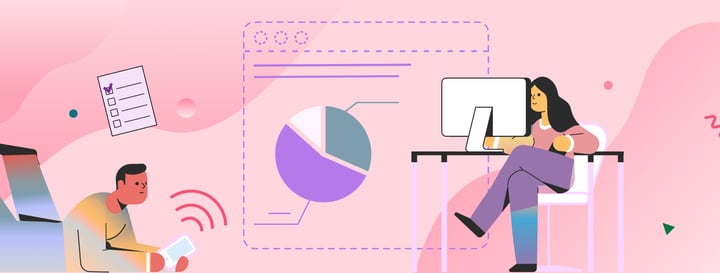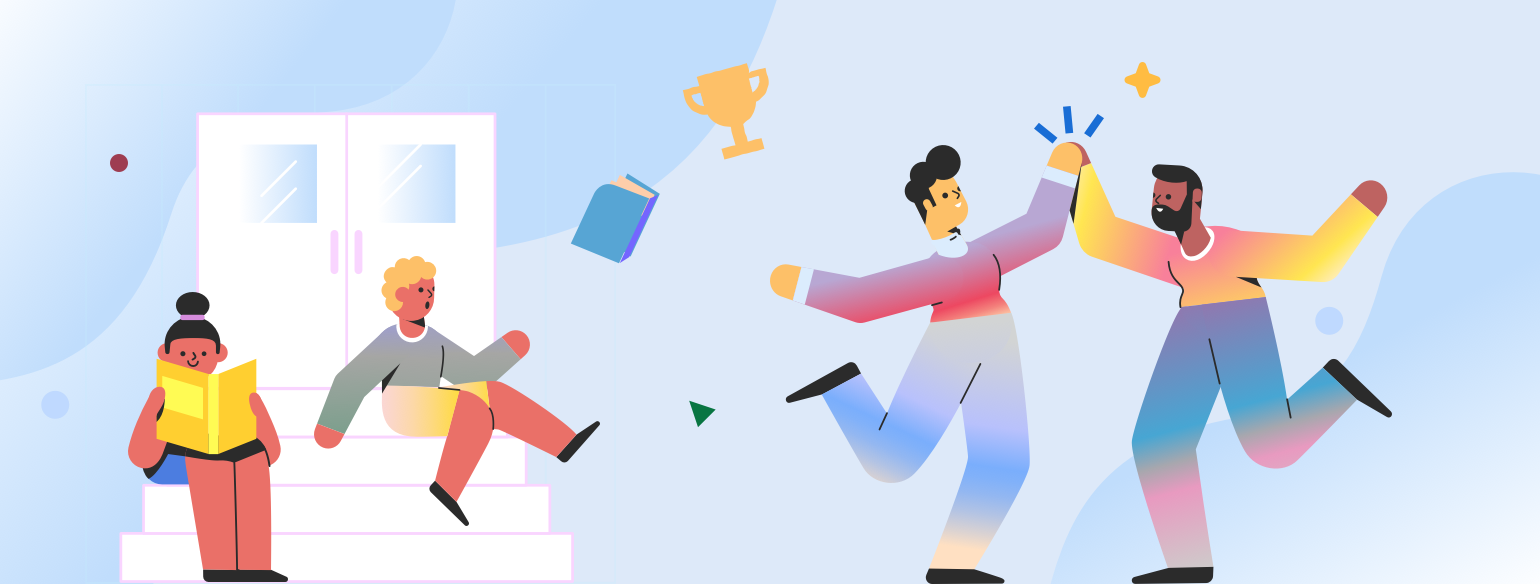Danielle Masterson, assistant director at Wilmington Memorial Library in Massachusetts, recently used Beanstack to run a “Reading Rivals'' competition between her library and the neighboring Tewksbury Public Library. During the six-week contest this past fall, the Wilmington Memorial Library readers went above and beyond their goal of reading 100,000 minutes and recorded seven times that, for a whopping 769,000 minutes—or 12,800 hours—of reading.
How did the Wilmington Memorial Library team and their community of readers pull it off?
They tapped into the innate human desire for friendly competition. Friendly competition brings an element of fun to a shared goal, inspiring those who might not otherwise take part in an activity to become motivated for the sheer glory of winning. Reading challenges with community goals tap into our inherent competitive drive by making the individual act of reading into a team sport.
Below, we share Masterson's tips for pulling off a successful reading challenge competition in her community using a combination of incentives and creative communication.
Incentivize Reading with Multiple Ways to Win
Offering rewards is a tried-and-true method for getting results, and mixing up the types and frequency of rewards makes it even more compelling. Additionally, a recent study on human behavior found that when people receive an immediate bonus for working on a task, their levels of enjoyment and interest in the work were higher than when the reward was held until the completion of the task.
Wilmington Memorial Library put these philosophies into play by offering prizes of $25 gift cards to any local business for participants who earned the most reading minutes each week. They then incentivized library patrons to get started by providing chances to win after only a few hours of reading. Their Reading Rivals landing page announced: “Log at least 3 hours of reading and be entered into our Grand Prize drawing for a $100 gift card to any local business of your choosing!”
Competitors vying for the top spot feel more motivated if they know who’s pulling ahead, so Masterson’s team used a variety of communication methods to let participants know their current standings. Readers stayed up to date on the community’s progress via social media and email. And to grab the attention of community members walking into the library, Masterson’s team also created eye-catching bulletin boards on each floor to visualize how their minutes stacked up against Tewksbury Public Library’s progress.
Wilmington Memorial Library also offered an end-of-competition payoff for the whole community. The library website announced that “the winning library will receive ‘The Reading Cup,’ a glorious trophy to be put on display at the library. Plus, bragging rights for one year, until we all compete again!” By mixing up the rewards and their frequency, Masterson was able to keep the excitement alive for the entire six weeks of their reading challenge.
The competition was fierce. In the end, Wilmington Memorial Library was deemed the winner with an impressive 525 participating readers and 769,331 minutes. Tewksbury Public Library finished close behind with 455 readers and 761,399 minutes. The reading challenge contest spurred their combined community to log more than 1.5 million minutes!
Build on Prior Success
The “Reading Rivals” challenge was so successful that the library ran another reading challenge contest this past March, creating a “Minute Madness” competition inspired by the NCAA’s popular March Madness basketball tournament.
To make the competition even bigger, Wilmington Memorial Library staff reached out to more libraries in their area. Her team shared the setup materials they used for “Minute Madness” so other libraries could easily create the challenge on their sites and inspire even more people and libraries to participate. By the start of the challenge, six additional libraries had joined in. Weekly standings for each round were posted on social media to add to the excitement and spur the friendly competition further.
This time, Masterson relied on virtual rewards in the form of sports-themed badges to add motivation. Registering for “Minute Madness,” for example, earned a “Ready to Play” badge, while patrons’ reading minutes translated to badges such as “Game On” for 120 minutes of reading, “Score!” for 300 minutes, “Jump Shot” for 480 minutes, and “The Slam Dunk” for 600 minutes.
Key details about the competition schedule were communicated to participants and cleverly designed to match the timing and framework of the March Madness tournament. “Starting March 1, log your reading as we fight for a spot in the Minute Madness Championship,” read one message. “On March 15, the top four libraries move onto the ‘Fierce Four’ quarterfinals,” said another.
To keep it fair, the final results were weighted by each library’s number of library card holders. After three rounds and a close final against Wilmington Memorial Library, Georgetown Peabody Library was declared the “Minute Madness” champion.

Data-driven Inspiration
Stories from Masterson and other school and public librarians show that competition really works to motivate community reading—and the data backs it up. In fact, our team at Zoobean recently conducted a survey that found that when organizers added an element of competition to classroom reading challenges, student reading participation jumped 19%.
Ready to learn more about how Beanstack reading challenges can get your community reading? Contact us today and we’ll help you get started.


.png?width=720&name=earlier-success%20(1).png)